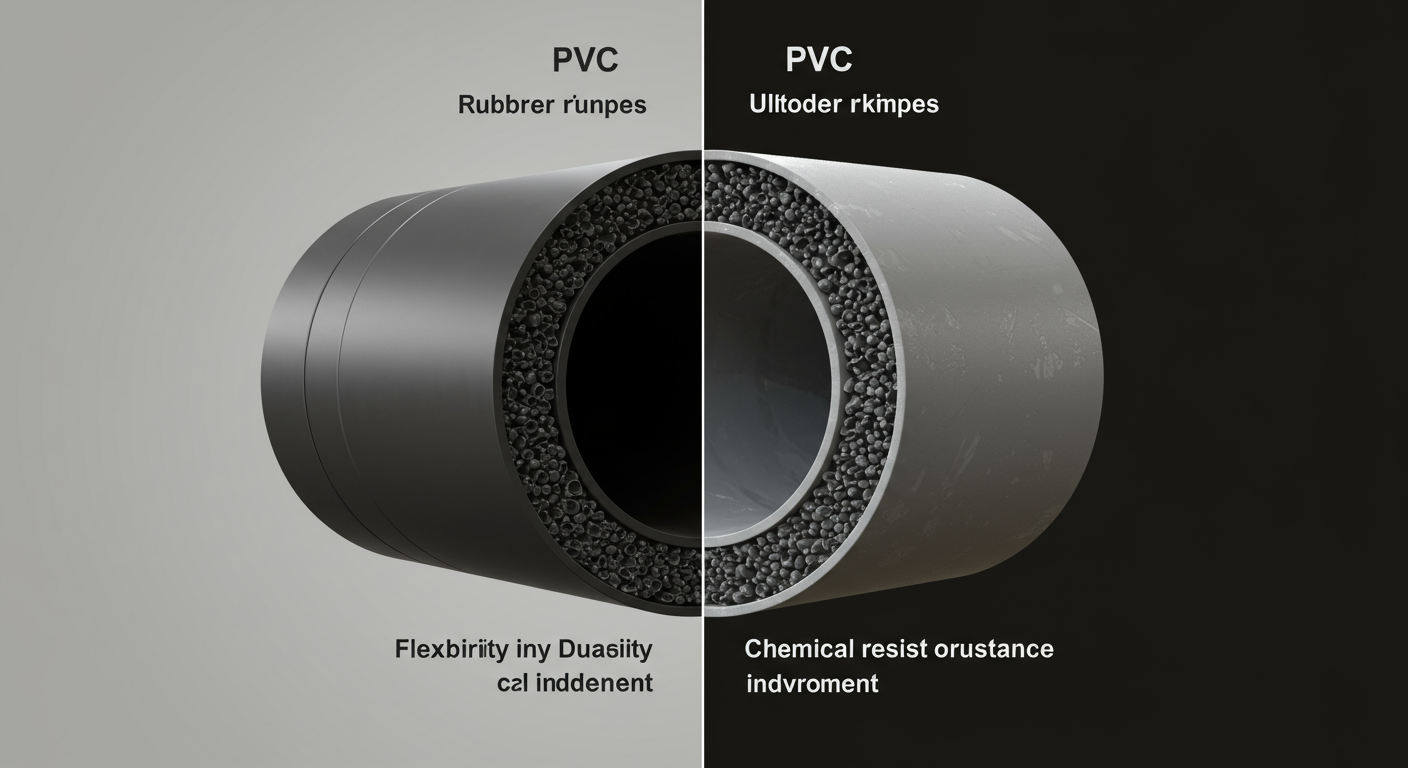Rubber vs. PVC: A Comparative Analysis for Industrial Applications
Introduction: Choosing the Right Material for Industrial Needs
Selecting the appropriate material for industrial applications is critical for ensuring performance, durability, and cost-effectiveness. Rubber and PVC are two common choices, each with unique properties and suitability for different applications. This comparison will help you make an informed decision based on your specific needs.
Rubber: Properties and Applications
Rubber, a versatile elastomer, offers excellent flexibility, elasticity, and resistance to abrasion and chemicals. Its properties vary widely depending on the type of rubber and additives used.
Key Properties of Rubber:
- High elasticity: Allows for significant deformation and recovery.
- Excellent vibration damping: Reduces noise and vibration transmission.
- Good chemical resistance: Resistant to many chemicals and solvents, but this varies greatly depending on the specific rubber type.
- Wide temperature range: Can withstand a range of temperatures, although performance may be affected at extremes.
Industrial Applications of Rubber:
- Seals and gaskets: Its flexibility and sealing properties make it ideal for various sealing applications.
- Vibration isolation mounts: Effectively dampens vibrations in machinery and equipment.
- Hoses and tubing: Resistant to abrasion and many chemicals, making it suitable for fluid transfer.
- Protective coatings: Provides protection against wear, corrosion, and chemical attack.
PVC (Polyvinyl Chloride): Properties and Applications
PVC, a rigid thermoplastic polymer, is known for its durability, strength, and resistance to weathering and chemicals. It's commonly used in various forms, including rigid pipes, flexible films, and sheets.
Key Properties of PVC:
- High strength and rigidity: Provides excellent structural support and dimensional stability.
- Excellent chemical resistance: Resistant to a wide range of acids, alkalis, and solvents.
- Good weather resistance: Maintains its properties even under harsh weather conditions.
- Relatively low cost: A cost-effective option for many applications.
Industrial Applications of PVC:
- Pipes and fittings: Widely used in plumbing, chemical processing, and other industrial applications.
- Protective coatings: Used as a protective layer against corrosion and chemical attack.
- Conveyor belts: Offers durability and resistance to abrasion.
- Window frames and profiles: Provides strength, rigidity, and weather resistance.
Rubber vs. PVC: A Direct Comparison
| Feature | Rubber | PVC |
|---|---|---|
| Flexibility | High | Low |
| Strength | Moderate | High |
| Durability | Good, depends on type and application | Excellent |
| Chemical Resistance | Good, varies significantly by type | Excellent |
| Cost | Moderate to high | Relatively low |
| Temperature Resistance | Good, varies greatly by type | Moderate, can become brittle at low temperatures |
The Vensco Advantage
Vensco Engineering Trading & Supplies offers a wide range of high-quality rubber and PVC materials, perfectly suited for various industrial applications in Egypt. We provide expert technical consultation to help you select the optimal material for your specific project requirements. Our deep product specialization and local presence ensure quick turnaround times and reliable support, making Vensco the smart choice for your industrial material needs.
Conclusion
The choice between rubber and PVC depends heavily on the specific application and required properties. Consider the factors outlined above to make an informed decision. For expert advice and high-quality materials, contact Vensco's technical consultation team today.
Get a personalized quote for your insulation needs today.


